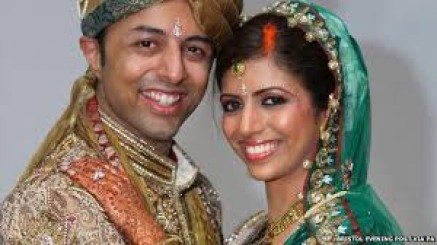Dewani trial could be over in days
Shrien Dewani could be cleared of the honeymoon murder of his new bride and be on his way back to Britain within days, according to one of South Africa's top legal experts.The state's case against the wealthy businessman is 'riddled with inconsistencies' and could collapse before Dewani, 34, even has to face tough questions in the witness box.
Leading defence attorney William Booth said the two 'star' state witnesses against the accused had been particularly 'poor' and his legal team had a 'more than reasonable' chance of having all charges against him dropped.
Dewani denies five charges relating to the death of his new bride, Anni, almost four years ago during their honeymoon to South Africa. The state alleges he plotted her murder by recruiting a taxi driver to organise two hitmen to kill and rob her in a fake carjacking worth £850 (R15,000).The driver, Zola Tongo – who spent his sixth day on the stand – is the only state witness whose evidence directly implicates Bristol-based Dewani in his Swedish wife's death in November 2010. But during gruelling cross-examination, Dewani's defence team managed to blast a number of holes in Tongo's story, highlighting discrepancies between his evidence from the witness box and his statement to police a week after Mrs Dewani suffered a fatal gun shot wound to the neck.
Francois van Zyl, who heads the defence team, also highlighted that the taxi driver received a substantially lower jail term for his role in the killing in exchange for implicating Dewani in the murder.
Mr van Zyl also poked holes in the evidence of hitman Mziwamadoda Qwabe, hired by Tongo via a middle-man, who was the state's second witness and also received reduced prison time in exchange for giving evidence against Dewani.
Mr Booth said: 'The two key witnesses - Tongo and Qwabe - have brought really the only testimony that counts in this trial and the quality of their evidence has been poor and riddled with inconsistencies. 'The overall quality of the prosecution case we have heard so far has not been high. There is nothing for the defence team to lose by bringing the application to have the case against their client discharged and I think they would have a strong reasons for doing so.
'If Dewani were my client, I would certainly go down that route.'
Even though the state is not duty bound to prove Dewani had a motive for killing his wife, evidence of the businessman's secret gay life was a cornerstone of the prosecution's case to demonstrate he had a compelling reason to want out of his new marriage.
However, much of that evidence went unheard when Judge Jeanette Traverso ruled in favour of Dewani to exclude much of the testimony of three key witnesses - including the gay escort paid by Dewani and known as the German Master and the first cousin in whom Anni Dewani had confided intimate details about their unhappy relationship.
Mr Booth said he rated the defence team's chance of any discharge application as 'more than reasonable', which would see Dewani going home to Bristol and cleared of all charges without ever having to give his version of what happened on the night his wife was murdered.
'Discharging a case is not something that judges do lightly, but Judge Jeanette Traverso is a bold judge and she does not tend to be cautious.
'The high-profile nature of the case would not influence her decision. I think if they brought a discharge application, the chance of success is more than reasonable, ' Mr Booth added.
If no discharge application is brought - or the judge rules that Dewani does have a case to answer - the defence team will have to decide whether or not to call the businessman to the witness box to talk about the mysterious events surrounding his wife's killing, and to be cross-examined by the state. This poses a further dilemma to Dewani's lawyers.
'Bringing an application to discharge the case is a much easier decision to make than the one about whether or not to call your client to give evidence,' Mr Booth added.
'Although it is not down to him to prove his innocence, a judge can choose to draw conclusions from the fact that an accused chooses not to give evidence in his own defence.'
Continue reading.
















